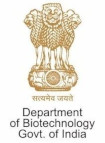RaviKiran Yedidi
Ravi has an interdisciplinary background in biomedical research. He obtained an MS degree from Wayne State University, Detroit, USA majoring in Molecular Biotechnology, where he worked on antibiotic resistance followed by screening natural products such as curcumin for their anti-Cancer activity. After a brief career as a Research Technician working on mouse models and primary cell cultures for neurofibromatosis type-1 research at the Henry Ford Health System, Detroit, USA, Ravi started his doctoral work at Wayne State Medical School, Detroit, USA. Ravi’s doctoral work started off in the laboratory of Dr. Larry H. Matherly (Barbara Ann Karmanos Cancer Institute, Detroit, USA) with a project on high-throughput microarray analysis of GATA1 targeted differential gene expression in paediatric acute megakaryocytic leukemia in the context of Down syndrome (/Blood 2006/). He then ventured into Structural Biology in the laboratory of Dr. Ladislau C. Kovari (Wayne State Medical School, Detroit, USA) where he discovered a novel proline-switch mechanism for multidrug-resistance (MDR) of HIV-1 protease from clinical patient isolate, MDR769 (/Acta Crystallogr D Biol Crystallogr. 2011/). During his doctoral work Ravi used an integrated approach of X-ray crystallography, NMR and Computational Biology tools to tackle MDR769 with his thesis focused on: (i.) structure-based drug-design leveraging the HIV-1 protease substrate co-evolution strategy (/Biochem Biophys Res Commun. 2013/) and (ii.) mechanism-based drug repurposing of anti-HIV/AIDS therapeutics as anti-malarial therapeutics (/J Med Chem. 2010/). Upon submission of his doctoral thesis under the supervision of Dr. Ladislau C. Kovari, Ravi started his postdoctoral work in the laboratory of Dr. Hiroaki Mitsuya at the National Cancer Institute, NIH, Bethesda, USA. He successfully established a Structural Biology facility in the HIV and AIDS Malignancy Branch at NCI-NIH where he used X-ray crystallographic solvent mapping approach for designing HIV-1 protease inhibitors (/Antimicrob Agents Chemother. 2013/) in parallel to the evaluation of existing FDA-approved HIV-1 protease inhibitors against MDR strains of HIV-1 in cell-based antiviral assays (/Antimicrob Agents Chemother. 2014/). During Ravi’s postdoctoral training at NCI, his collaborations with various laboratories in Japan and U.S. resulted in the structural analysis of several highly potent HIV-1 protease inhibitors (/Nat Sci Rep. 2017/) with antiviral potency ranging from picomolar to attomolar (/eLife 2017/). With more than 15 years of Structural Biology and drug discovery experience Ravi took on the eukaryotic proteasome to tackle its structural dynamics in yeast (/Crit Rev Biochem Mol Biol., 2017/) and the role of ubiquitin in the proteasomal dynamics (/Mol Biol Cell., 2017/) at the University of Toronto, Toronto, Canada. In parallel he also founded a start-up company in Toronto, Canada focused on training people in drug discovery tools.
Ravi started as the Structural Biology team lead at CCBT in 2018 and is geared up for the structural analysis of lead small molecule inhibitors identified at CCBT bound to their respective protein targets. He is using an integrated approach consisting of X-ray crystallography, NMR and CD spectroscopic techniques to elucidate the structures of intrinsically disordered proteins (IDP).


